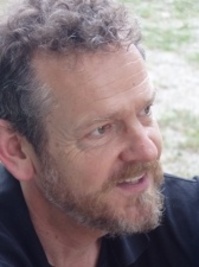 There are a number of approaches to talking about the emergent church or, as I have preferred to talk — emerging movement and emergent village/church, and the two favorite approaches are to say: it’s dead or it’s undefinable. About four years ago I was asked the “Whither Emergent?” question: Where was emerging headed?
There are a number of approaches to talking about the emergent church or, as I have preferred to talk — emerging movement and emergent village/church, and the two favorite approaches are to say: it’s dead or it’s undefinable. About four years ago I was asked the “Whither Emergent?” question: Where was emerging headed?
At the time I suggested three things: some emerging Christians will become mainline liberals (or progressives as many prefer to be called now), some will retreat a bit by assuming their old seats in evangelical churches, and others will continue to impact the evangelical movement in a missional or expansive, robust gospel direction. I don’t have numbers, but that’s probably about right, but I’ve since realized that there really weren’t that many other options. Anyway, I’m not into futurism or prophesying.
One thing is very, very clear now: many in the emerging movement, and especially many in what I preferred to call the “emergent” crowd, have taken up solid stances in the American mainline churches. You will probably find folks like Brian McLaren and Tony Jones and Doug Pagitt and Phyllis Tickle more often among the mainline crowd than among evangelicals. It can be said that emergent’s biggest influence is probably right now more with the mainline than anywhere else — except to offer two caveats: (1) many evangelicals who have emerging sympathies were worn down by the progressive direction of others and just dropped the label and are still emerging while (2) many other emerging folks are creative and living in the cracks of the mainline-evangelical divide but really don’t have a central organization right now for some kind of overt identification. I could be wrong, but this is what I’m seeing and sensing.
Which leads me to my point: Philip Clayton’s new book, Transforming Christian Theology: For Church and Society
, is nothing if it is not the fully skinny on progressive, mainline-shaped emergent theology. If Brian McLaren’s A Generous Orthodoxy
mapped the frustration and ambivalences of many emergent thinkers and wonderers, Clayton’s book maps the terrain and the direction of the same.
, is nothing if it is not the fully skinny on progressive, mainline-shaped emergent theology. If Brian McLaren’s A Generous Orthodoxy
mapped the frustration and ambivalences of many emergent thinkers and wonderers, Clayton’s book maps the terrain and the direction of the same.
Clayton argues that theology has been the prerogative an elite group of professors, but he believes it’s got to be seen as what all of us do instead of just what the professors and professionals do. He outlines what can only be called a progressive emergent agenda for doing theology in a series of proposals — too many to name here. It’s a good book and I hope it gets a wide hearing. Thus, his emphases are:
Belonging, behaving, believing
Change is important and inevitable
Big Tent theology doesn’t have to be divisive
Theology creates story and it leads to action
Activism is shaped by theology
Church ministries are sliding into missional churches
But what struck me about Clayton’s book, and it struck me because I thought it was noticeably old-fashioned and at the same time not completely in sync with the central themes of the book itself, was the six questions of theology he thinks that folks are asking and need to ask:
1. Who is God?
2. Who is Jesus, called the Christ?
3. Who is the Spirit, or the Holy Spirit?
4. What is humanity?
5. What is the problem of sin, and what does salvation mean?
6. What is the nature and function of the church?
7. What is the future in which we hope and for which we long?
Well, as I read this, I thought — straight out of the old categories of theological textbooks. Surprised me.
And what I found mission was a Jesus-shaped core to those questions, a Jesus whose kingdom vision was reshaping all theological questions: And Philip’s book is shaped more by that set of categories than those six. So, I wonder if the first question isn’t “What is Jesus’ vision of the kingdom?” and how does that question re-shape the whole?

